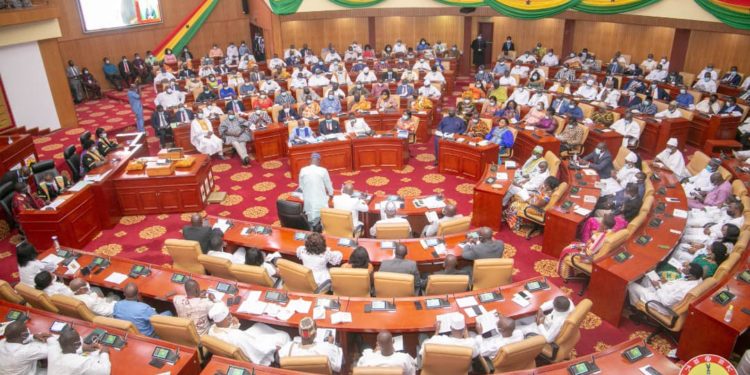60% of Africans Don’t Believe Democracy is Working in Their Interests – How Parliaments Can Fix The Problem
Across Africa, democracy is being tested by rising authoritarianism and military coups as well as a growing disconnect between citizens and the institutions meant to represent them.
The latest flagship report from Afrobarometer, a pan African research network, delivers a powerful warning. Citizen Engagement, Citizen Power, released in July 2025, reports that over 60% of Africans are dissatisfied with how democracy works in their countries. Support for democracy remains high, but belief in its effectiveness is fading, especially when citizens feel excluded from meaningful participation in decisions that affect them.
Put simply: the crisis of participation results from people being absent from the room when decisions that affect them are made. This article sets out practical ways parliaments can bring citizens in.
I am a political scientist whose work in comparative politics focuses on political institutions and democratic engagement in Africa. My broader research builds on my PhD on institutional development and legislative public engagement in Nigeria.
This research has shown that democratic fatigue has many roots, including insecurity and unmet socio-economic needs. But the deeper issue is a crisis of participation where decisions that affect people are made without consultation. Too often, Africans feel that decisions are made for them, not with them. Power remains concentrated in elite circles, while public engagement is reduced to symbolic gestures.
Democracy, in this view, is something performed in capitals rather than lived in communities.
If that is to change, parliaments must take the lead. As the institutions most visibly linked to representation, they can reconnect citizens with the democratic process. When parliaments get people to take part, they help restore public confidence. When they fail to do so, the entire democratic project is weakened.
Encouragingly, many African constitutions, including those of Kenya, South Africa, Zambia and Zimbabwe, now call for public participation in making laws.
Parliaments are increasingly referring to citizen engagement in their strategic plans, and standout models like South Africa’s Public Participation Model offer practical frameworks.
South Africa’s efforts have contributed to a 27% increase in public understanding of the parliament’s mandates. Evidence from civil society and independent research corroborates this.
But in many countries implementation remains patchy, and most parliaments fall short on including citizens.
According to Afrobarometer’s October 2024 data, trust in parliaments has declined by 19 percentage points since 2011. Only 37% of Africans now express confidence in these critical policy-making and representative bodies.
There’s a sense that public participation is often tokenistic — and that parliaments engage with citizens only when politically convenient.
Two recent examples illustrate the cost of disengagement. In Kenya, mass protests over the 2024 Finance Bill erupted after parliament passed controversial tax measures without adequate public consultation. The backlash, including the storming of parliament, reflected widespread anger not just at the bill’s content, but at the lack of citizen involvement in shaping it.
In Nigeria, lawmakers reinstated a colonial-era national anthem in a single day, bypassing public input.
One of the reasons trust in parliaments is falling is that there are gaps in how the institution listens and acts.
As the Afrobarometer data shows, citizens consistently believed that parliaments hold the key to making laws and holding leaders to account. So the challenge is not what the institution does or is expected to do, it is how it does it. Thus, producing visible actions is one way for parliament to restore public faith.
What Afrobarometer tells us about participation
The message of Citizen Engagement, Citizen Power is clear: citizens want more than just the right to vote. They want to shape decisions, hold leaders accountable, and co-create solutions to the challenges they face. Participation is not a luxury; it is central to the legitimacy and effectiveness of democratic institutions.
For parliaments, this starts with communication. Many citizens are simply unaware of what their parliament does, or how to influence it. Parliamentary websites are often out of date, social media channels underused, and legislative documents filled with inaccessible jargon.
Parliaments must use plain-language summaries, infographics and citizen-focused materials to explain key issues. This is urgent in an era of misinformation and deep fakes.
Radio remains one of the most powerful and accessible tools for democratic outreach. Legislatures already using radio programmes to explain bills and gather feedback should expand these initiatives, especially in local languages. Podcasts, public dialogues and community events can also spark engagement.
But engagement is not only about information – it is about presence. Many parliaments remain physically and culturally distant from the people they serve. Members of parliament are increasingly drawn from wealthy, business-oriented elites, creating a growing perception that parliament serves its own interests.
In earlier periods, teachers, civil servants and community leaders were more common in legislatures.
To close this gap, parliaments must invest in decentralised engagement. That includes hosting hearings outside capitals, organising outreach in rural areas, and partnering with schools, universities and faith-based institutions.
Crucially, consultation must be genuine. All too often, participation is limited to elite NGOs in urban centres. They play an important role, but are not a substitute for broad-based engagement. South Africa’s Parliamentary Democracy Office offers one model: a dedicated outreach unit working to include rural voices and translate public input into policy. Similar efforts across the continent should ensure that participation becomes routine, and that citizens can trace how their contributions affect outcomes.
Existing community structures can host citizens’ assemblies and forums. Technology can also help, but must be used inclusively. With nearly half the population living in rural areas and one-third lacking formal education, digital engagement risks excluding the very groups that most need a voice.
Participation as a democratic lifeline
The Afrobarometer report shows that citizens are not turning away from democracy itself. They are turning away from democratic institutions that don’t include them. Participation can reconnect citizens to democracy and restore trust in governance. But only if it is meaningful, sustained and inclusive.
The events in Kenya and Nigeria demonstrate the risks of exclusion. If parliaments legislate without the people, citizens will seek a voice elsewhere – through protests, populist movements, or authoritarian alternatives.








